Aging infrastructure, soaring electricity demand, renewable integration, and climate risks are driving the largest US grid modernization effort in history.
Category: life extension – Page 4

Scientists Identify How Young Blood Reverses Aging in Human Skin Cells
The idea of taking blood from the young to rejuvenate the elderly is getting an increasing amount of attention from scientists, and a new study has shown how some of the youthful properties of our skin can be restored with this kind of blood swap.
A special 3D human skin model was set up in the lab by researchers, who then tested the effects of young blood serum on the skin cells. By itself, the serum had no effect, but when bone marrow cells were added to the experiment, anti-aging signals were detected in the skin.
It appears that the young blood serum interacts with the bone marrow cells in specific ways to roll back time in skin cells. The study was led by scientists from Beiersdorf AG, a skin care company in Germany, who say their findings have huge potential in helping us understand anti-aging mechanisms.
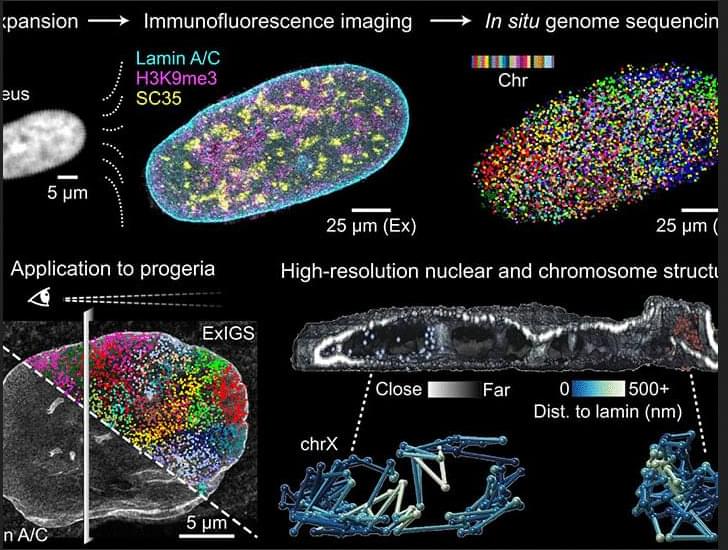
Expansion in situ genome sequencing links nuclear abnormalities to aberrant chromatin regulation
Great paper which combines expansion microscopy and in situ genome sequencing to map chromatin structure and selected protein targets in cellular nuclei. ExIGS was then used to explore how lamin protein and genome organization within nuclei changes during aging. #systemsbiology
Microscopy and genomics are used to characterize cell function, but approaches to connect the two types of information are lacking, particularly at subnuclear resolution. Here, we describe expansion in situ genome sequencing (ExIGS), a technology that enables sequencing of genomic DNA and super-resolution localization of nuclear proteins in single cells. Applying ExIGS to progeria-derived fibroblasts revealed that lamin abnormalities are linked to hotspots of aberrant chromatin regulation that may erode cell identity. Lamin was found to generally repress transcription, suggesting that variation in nuclear morphology may affect gene regulation across tissues and aged cells. These results demonstrate that ExIGS may serve as a generalizable platform with which to link nuclear abnormalities to gene regulation, offering insights into disease mechanisms.
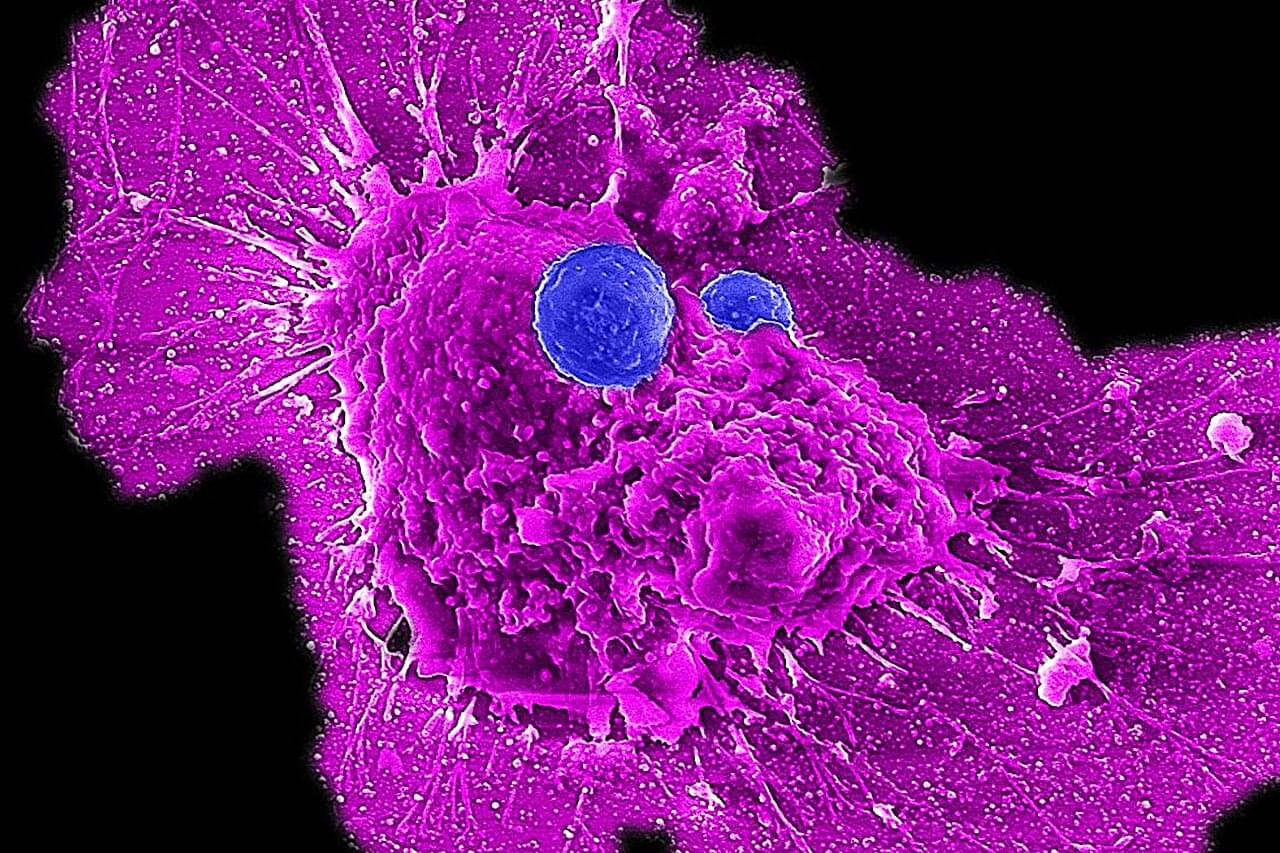
Scientists develop off-the-shelf immunotherapy for ovarian cancer
Ovarian cancer is the leading cause of death among women with gynecological cancers. The current medical playbook—surgery followed by chemotherapy—initially shows promise. Tumors shrink, sometimes disappearing entirely. But in more than 80% of patients, the cancer not only comes back, but returns more aggressive and increasingly resistant to the very treatments that once seemed effective.
But now, there could be new hope. In a study published in the journal Med, UCLA researchers have detailed their development of a new type of immune cell therapy, called CAR-NKT cell therapy, that could transform ovarian cancer care by delivering superior cancer-fighting power.
“This is the culmination of over a decade of work in my lab and represents over six years of collaboration with gynecologic oncologist Dr. Sanaz Memarzadeh,” said co-senior author Lili Yang, a professor of microbiology, immunology and molecular genetics and a member of the Eli and Edythe Broad Center of Regenerative Medicine and Stem Cell Research at UCLA.
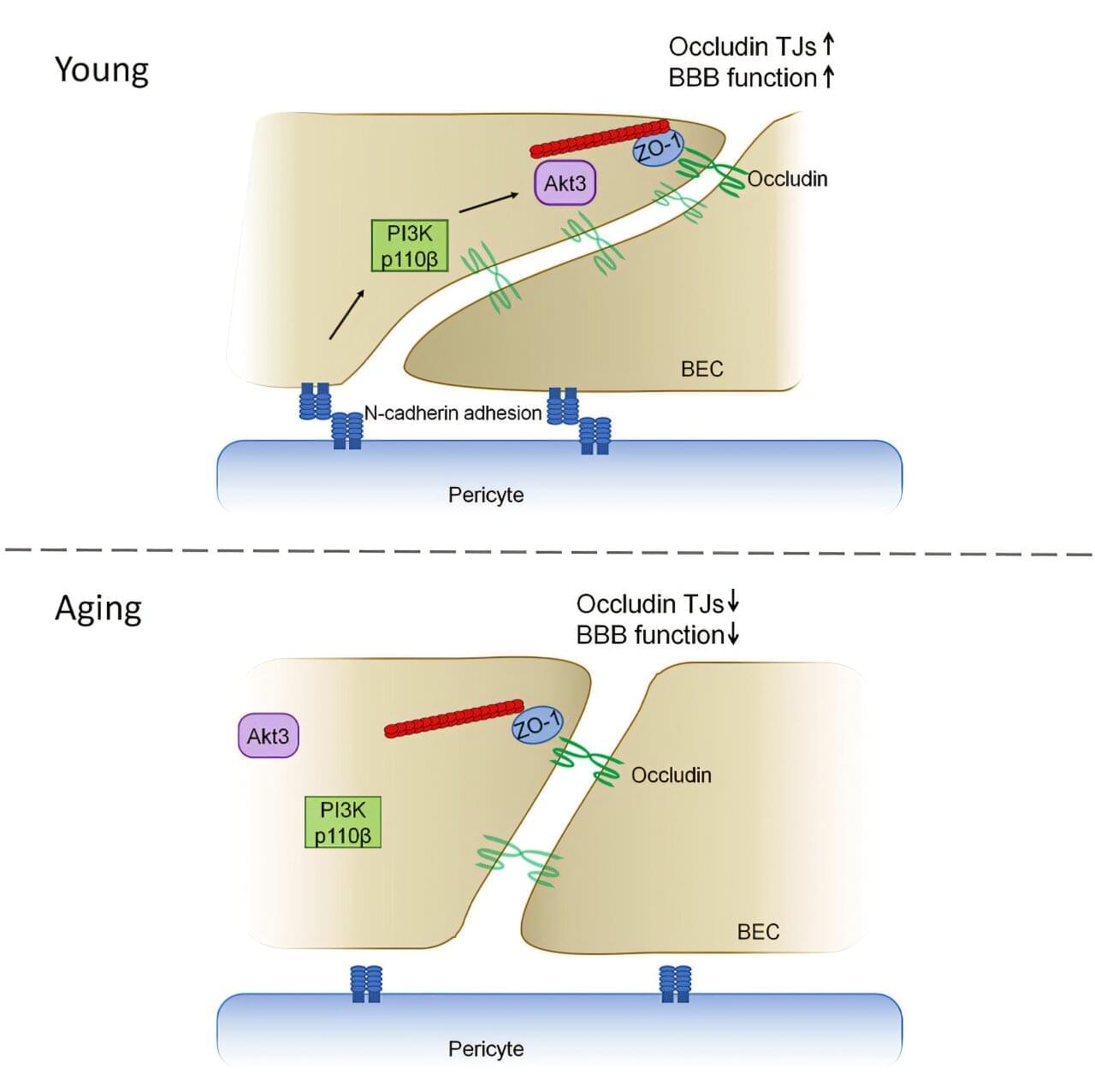
Molecular mechanisms show how the blood-brain barrier gets leakier with age
A new study from researchers at the University of Illinois Chicago reveals how the blood-brain barrier gets leakier with age, contributing to memory deficits. The study, published in Cell Reports, uncovered the molecular mechanisms behind this process and could provide new therapeutic targets to address cognitive decline earlier in the aging process.
The blood-brain barrier is a layer of cells lining the brain’s blood vessels that keep viruses, bacteria and toxins out while allowing helpful nutrients and chemicals in. A key structure of the blood-brain barrier are tight junctions that act as bridges between cells, restricting entry of molecules. A protein called occludin helps fulfill this essential role.
“It’s a highly regulatable process that allows some molecules to go through and others to remain in circulation,” said Yulia Komarova, UIC associate professor in the department of pharmacology and regenerative medicine at the College of Medicine and senior author of the study. “Basically, it’s a mechanism that separates the central nervous system from everything else.”
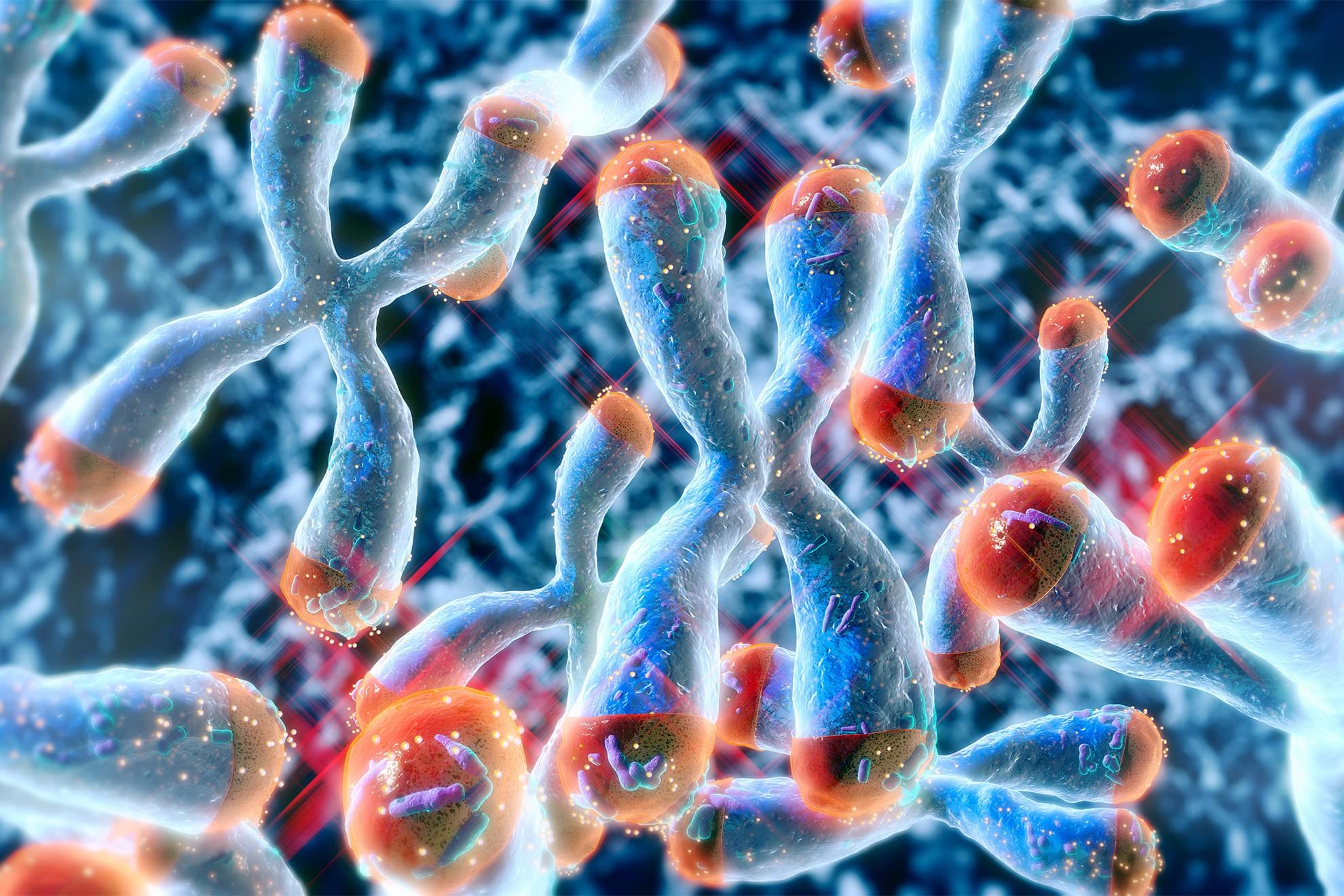
Vitamin D supplements may slow biological aging
Results from a randomized controlled trial reveal that vitamin D supplementation helps maintain telomeres, protective caps at the ends of chromosomes that shorten during aging and are linked to the development of certain diseases.
The new report, which is published in The American Journal of Clinical Nutrition, is based on data from a VITAL (VITamin D and OmegA-3 TriaL) sub-study co-led by researchers at the Harvard-affiliated Mass General Brigham and the Medical College of Georgia, and supports a promising role in slowing a pathway for biological aging.
“VITAL is the first large-scale and long-term randomized trial to show that vitamin D supplements protect telomeres and preserve telomere length,” said co-author JoAnn Manson, the principal investigator of VITAL and chief of the Division of Preventive Medicine at Harvard-affiliated Brigham and Women’s Hospital and the Michael and Lee Bell Professor of Women’s Health at Harvard Medical School.
Trial shows protection against telomere shortening, which heightens disease risk.
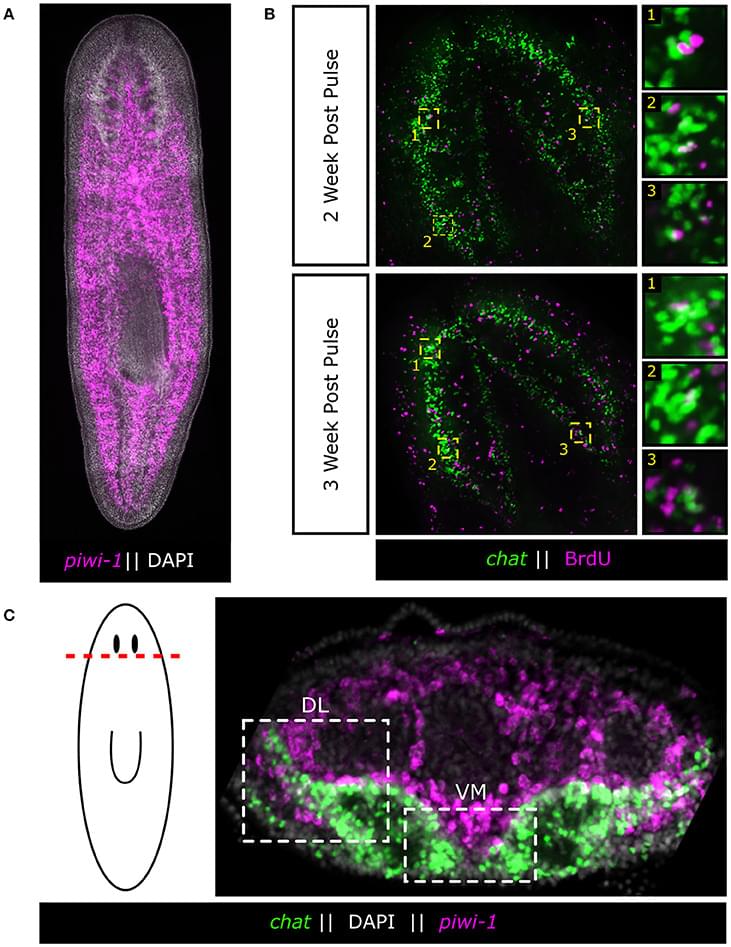
Adult Neurogenesis: Beyond Rats and Mice
Basically I believe that the flatworm could give the genetic code for essentially brain immortality other just nad plus. But it would have to be made in the brain and controlled possibly with nanotransfection which would scan the body and modify the human brain cells to have its characteristics that may already exist in the human brain also.
Powerful genetic tools in classical laboratory models have been fundamental to our understanding of how stem cells give rise to complex neural tissues during embryonic development. In contrast, adult neurogenesis in our model systems, if present, is typically constrained to one or a few zones of the adult brain to produce a limited subset of neurons leading to the dogma that the brain is primarily fixed post-development. The freshwater planarian (flatworm) is an invertebrate model system that challenges this dogma. The planarian possesses a brain containing several thousand neurons with very high rates of cell turnover (homeostasis), which can also be fully regenerated de novo from injury in just 7 days. Both homeostasis and regeneration depend on the activity of a large population of adult stem cells, called neoblasts, throughout the planarian body. Thus, much effort has been put forth to understand how the flatworm can continually give rise to the diversity of cell types found in the adult brain. Here we focus on work using single-cell genomics and functional analyses to unravel the cellular hierarchies from stem cell to neuron. In addition, we will review what is known about how planarians utilize developmental signaling to maintain proper tissue patterning, homeostasis, and cell-type diversity in their brains. Together, planarians are a powerful emerging model system to study the dynamics of adult neurogenesis and regeneration.
The adult brain has long been thought to be a fixed structure due to its immense complexity as is illustrated succinctly in the following quote from prominent nineteenth century neuroscientist and Nobel laureate Santiago Ramón y Cajal:
“Once the development was ended, the founts of growth and regeneration of the axons and dendrites dried up irrevocably. In the adult centers, the nerve paths are something fixed, ended, and immutable. Everything may die, nothing may be regenerated. It is for the science of the future to change, if possible, this harsh decree.”
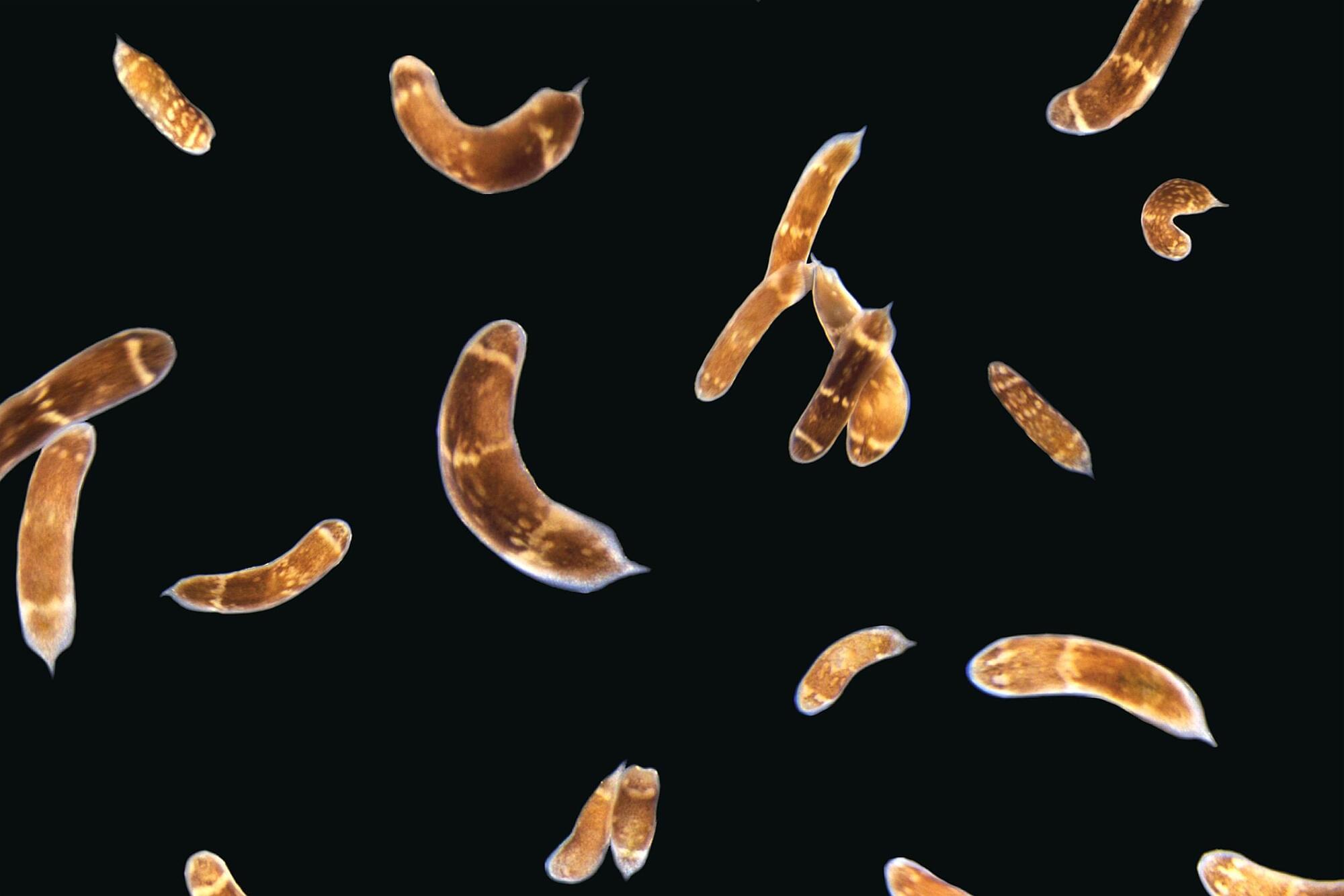

Without Gene Therapies it Will Not be Possible to Extend Life | 071 Liz Parrish, Mba
Dr. Esra Çavuşoğlu, PhD’s 71st Ayık Kafa podcast guest is Liz Parrish explores the transformative potential of gene therapy in extending human longevity and enhancing healthspan.
Liz Parrish MBA, is the Founder and CEO of BioViva Sciences USA Inc. BioViva is committed to extending healthy lifespans using gene therapy and works on combinatorial gene therapies with its proprietary CMV gene therapy delivery platform.
Liz is a humanitarian, entrepreneur, author, and innovator. In addition, she is a proponent of the Best Choice Medicine plan (BCM), a more efficient and streamlined regulatory model around the use of genetic therapies.
She shares her personal journey, the scientific basis for gene therapy, and the economic implications of aging-related diseases. The podcast also takes a closer look at the four different gene therapies that Liz Parrish administered to herself: Klotho, Follistatin, PGC-1α, and Telomerase Reverse Transcriptase. The discussion covers the various gene therapies being developed, their safety, ethical considerations, and the importance of early intervention. Liz emphasizes the need for public awareness and investment in longevity research to make these therapies accessible to all.
#EsraÇavuşoğlu #AyıkKafa #ElevatingLifeEvolvingHealth #Longevilab #LizParrish #Longevity #genetherapy.
Liz Parrish: